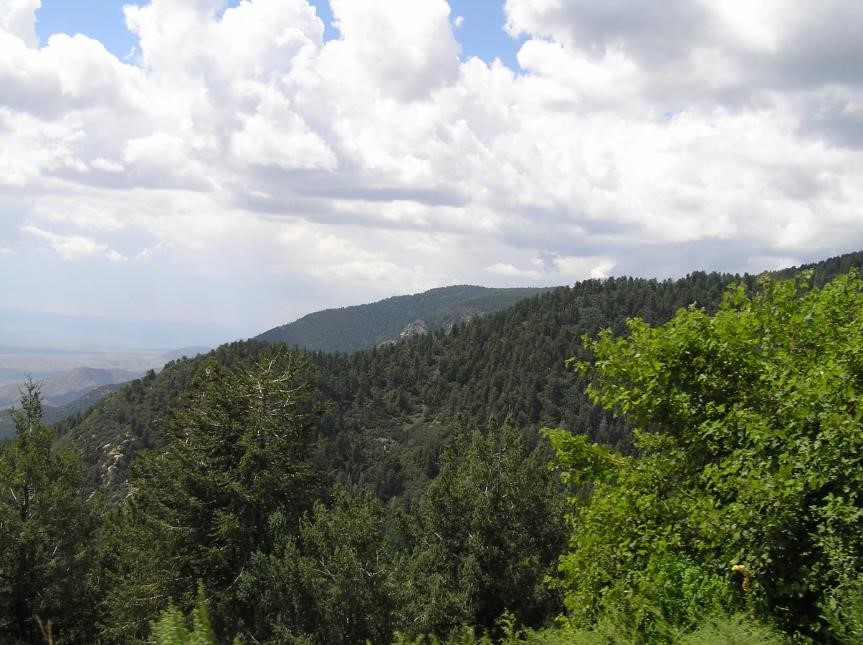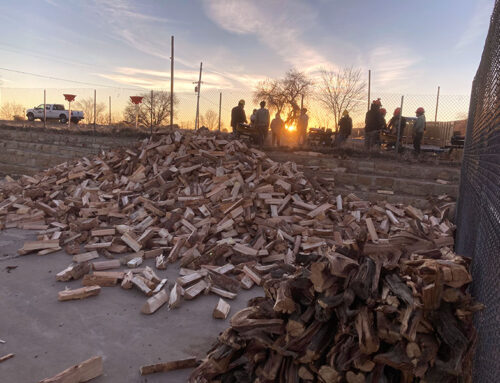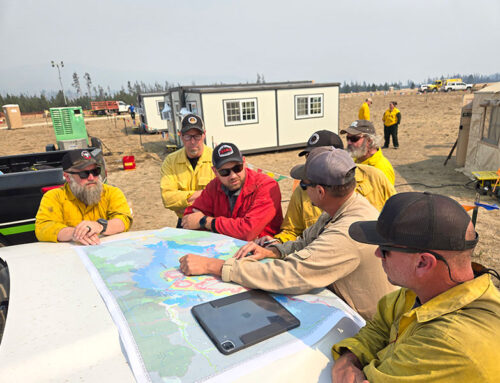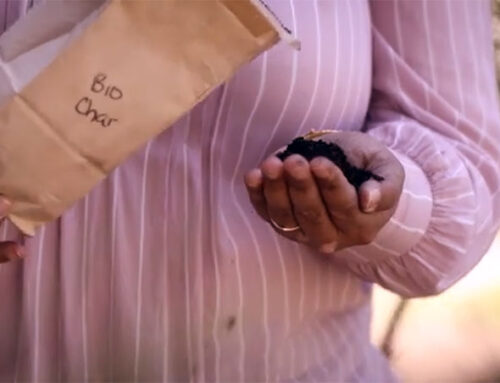Effective land management requires understanding an ecosystem’s vulnerability to climate change impacts and the appropriate management responses to these threats.
The ERI hosted a workshop in March 2022 for the Coronado National Forest, in partnership with USDA Forest Service Region 3 and the Western Wildland Environmental Threat Assessment Center (WWETAC). Participants listened to presentations on best available climate science, including ones from University of Arizona Professor Don Falk and Forest Service Regional Ecologist Jack Triepke, brainstormed impacts to their forest and districts, and developed adaptation strategies over two days. The Adaptation Partners’ Adaptation Library was a helpful tool for developing and discussing vulnerabilities and strategies in land management. Links to the southwestern vulnerability assessments, previous workshop summaries, and additional information on climate adaptation in the Southwest can be found here.
This workshop is part of ERI’s work to support the Forest Service Region 3 Climate Adaptation Strategy, which builds on an upland ecosystem vulnerability assessment, an aquatic and riparian vulnerability assessment, and a socioeconomic vulnerability assessment, among other relevant research and assessments in the Southwest.
We also partnered with the R3 Ecologist to produce a fact sheet, “Climate Change Vulnerability Assessment of Upland Ecosystems.” This fact sheet summarizes the Triepke et al. (2019) publication of an all-lands region-wide (Arizona and New Mexico) climate vulnerability assessment. This fact sheet highlights how managers can use the assessment, understand inputs, uncertainty, interpretation of results, and the need to assess climate vulnerability at both local and landscape scales. Relating the local vulnerability in the context of the broader ecosystem is an important step in determining the appropriate climate adaption approach for a given area. Assessing vulnerability at multiple scales can inform management prioritization of an area and the selection of the appropriate management action.




